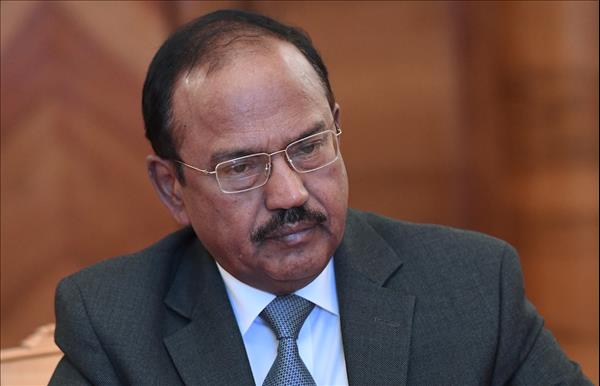
Realpolitik Drives Engagement Between India And Taliban
When the death of Ayman al-Zawahiri was announced last week, the government of India, a country singled out as a target by the al-Qaeda leader, remained quiet.
Many analysts read the fact that he was able to base himself in the Afghan capital as the Taliban's failure to keep its promise that the group had cut ties with extremist groups threatening other countries. Theories swirled that Pakistan had given up his location to the Americans in a great betrayal.
Either way, Zawahiri's death on a Kabul balcony from a US drone strike was an awkward moment for India because it highlighted what was once considered unthinkable – New Delhi's attempts to build ties with the Taliban.
In June, India announced the reopening of its embassy in Kabul after shutting it down when the Taliban swept to power a year ago.
Historically, India and the Taliban have been enemies. The Indian national-security establishment viewed the group as a Pakistani proxy; the Taliban in their previous incarnation as a government between 1996 and 2001 ensured that Afghanistan gave Pakistan and anti-India terror groups strategic depth.
From the Taliban's perspective, India supported Afghanistan's previous republican government, as well as anti-Taliban forces in the 1990s. Given this, it is surprising that the two sides now seem to want to engage with each other. Yet it seems as if realpolitik has brought both sides to this moment.
The Taliban are desperate for developmental and humanitarian assistance. Afghanistan's economy has collapsed, a situation worsened by one of the worst droughts to hit the country in living memory.
In June, a devastating earthquake killed 1,000 people . India sent 30,000 metric tons of wheat and 500,000 doses of Covid-19 vaccines to Afghanistan in February. Pakistan, long viewed as the Taliban's benefactor, will in the long term be unable to match Indian assistance given that its economy is a shambles and the level of political instability .
Moreover, Pakistan-Taliban relations have become increasingly tense in recent months. Just like previous Afghan governments, the Taliban refuse to recognize the Afghanistan-Pakistan border, viewing it as a colonial imposition. Taliban border guards have repeatedly blocked Pakistani attempts at fencing the border.
Islamabad is also unhappy with the Taliban's unwillingness or inability to rein in the anti-Pakistan Tehreek-e-Taliban (TTP) militant group, which maintains bases in Afghanistan. In April, Pakistan launched air raids against what it believed were TTP bases in eastern Afghanistan, which killed dozens of Afghan civilians .
A Taliban spokesman said the air strikes would pave the“way for enmity between Afghanistan and Pakistan .” A souring Taliban-Pakistan relationship may have created an opportunity for New Delhi.
Cooperation could begin with India providing developmental and humanitarian assistance in return for the Taliban's assurances that they will not allow Afghanistan to be used by anti-India terror groups.
New Delhi has still not officially commented on the Zawahiri killing. He had threatened India as recently as May, yet despite this, and perhaps to avoid embarrassing the Taliban further, New Delhi has chosen to stay silent.
Instead, TV channels seen as friendly to the government have speculated feverishly on Pakistan stabbing the Taliban in the back by disclosing to the US Zawahiri's location in a villa linked to the Haqqani faction of the Taliban, long considered close to Pakistan.
Both New Delhi and the Taliban, despite their history, have given signs over the last few months that they need not view each other as enemies. Even in 2019, when India enraged Pakistan by stripping Kashmir of its autonomy, the Taliban refused to comment on the issue , saying it was India's internal affair.
New Delhi for its part has avoided antagonizing the Taliban. In November last year when India hosted the Afghanistan Conference with regional states, it made it clear that its aim in Afghanistan was not to support an anti-Taliban military alliance, but to prevent Afghan territory from being used by transnational terror groups.
In May, India's national security adviser, Ajit Doval, went a step further by calling for enhancing Afghanistan's counterterrorism capabilities. What was left unsaid was how this could be done when the Taliban have not been recognized by any government thus far.

Clues as to the direction of the current limited detente may be gleaned from the red-carpet welcome given by the Taliban to 25 India-trained Afghan soldiers affiliated with the previous regime who returned to Kabul this month. After assurances from the Afghan Interior Ministry that no harm would come to them, it was further announced they would be used for the country's national defense.
The Taliban's defense minister, Mullah Yaqoob, has also called for Taliban soldiers to receive training in India. This has to be seen in the context of the Taliban's inability to defeat the ISIS in Khorasan Province militant group.
This may be a bridge too far for New Delhi for now, but it is significant given that Afghan Interior Minister Sirajuddin Haqqani belongs to the Haqqani faction, which was blamed for the 2008 Indian Embassy bombing in Kabul.
Because of its strategic location and considerable mineral deposits, a Taliban-controlled Afghanistan will become the site of great-power competition yet again. Soon after coming to power, the Taliban asked a state-backed Chinese company to return to a mining project to extract copper. Neither the US nor India would like to see a Taliban-ruled Afghanistan fall under Beijing's sway.
As odious as the Taliban regime is, particularly in its treatment of women and minorities, it seems realpolitik will increasingly determine not just India's but the world's engagement with the new regime in Kabul.
This article was provided by Syndication Bureau , which holds copyright.

Legal Disclaimer:
MENAFN provides the
information “as is” without warranty of any kind. We do not accept
any responsibility or liability for the accuracy, content, images,
videos, licenses, completeness, legality, or reliability of the information
contained in this article. If you have any complaints or copyright
issues related to this article, kindly contact the provider above.

















Comments
No comment